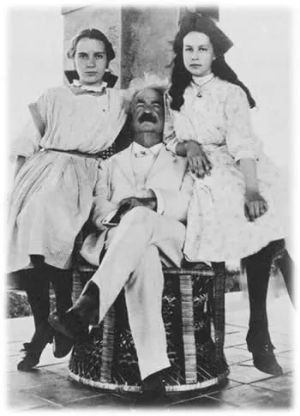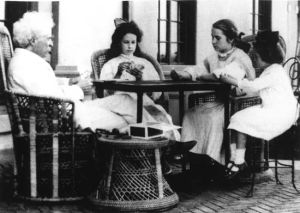One of our staff members is contributing considerably to a News Archiving service at Mu. Any well educated (Masters, PhD or above) users who wish to make comments on news sites, please contact Jim Burton directly rather than using this list, and we can work on maximising view count.
Mark Twain

Samuel Langhorne Clemens (November 30, 1835 – April 21, 1910), known by his pen name Mark Twain, was an American writer, humorist, entrepreneur, publisher, and lecturer. He was praised as the "greatest humorist the United States has produced", and William Faulkner called him "the father of American literature". His novels include The Adventures of Tom Sawyer (1876) and its sequel, Adventures of Huckleberry Finn (1884), the latter of which has often been called the "Great American Novel".
When he was 22, Twain met a 13- or 14-year-old female named Laura Wright whom he declared an “instantly elected sweetheart”. Their fleeting encounter had a profound impact on him, and he dreamt of her throughout his life (Powers, 2010).[1] At the age of 72, Twain began collecting young female friends in his “Aquarium Club”. Correspondence and meetings with members of the club, females aged 10 to 16, became his chief joy in life (Cooley, 2009).[2] At 15-years-old, Gertrude Natkin reportedly developed a crush on him.[3] Twain's biographer (Hill, 2010) suggests that sexual contact with one of these females, who was 15 at the time, may have occurred.
On the Aquarium Club, Hill (2010)[4], writes:
Perhaps also somehow associated with his increasing age was his constant and almost compulsive interest in little girls. On his first trip to Bermuda in 1908 he made a close friend of Margaret Blackmer; on the second, he discovered Irene Gerken. As Miss Lyon described him, “his first interest when he goes to a new place is to find little girls” and “off he goes with a flash when he sees a new pair of slim little legs appear; and if the little girl wears butterfly bows of ribbon on the back of her head then his delirium is complete.” He organized this “harem” into the Aquarium Club and gave each member an angel-fish pin. Clara was appointed the “Mother Superior” and Miss Lyon “The Chatelaine” of the group, and the list of M.A.’s (Members of the Aquarium) swelled to a dozen. Clemens transcribed their names into his notebook–Dorothy Butes, Dorothy Quick, Dorothy Harvey, Dorothy Sturgis, Hellen Martin, Helen Allen, Irene Gerken, Margaret Blackmer, Louise Paine, Frances Nunnally, Jean Spurr, and Marjorie Breckenridge–careful to note the girls’ ages, eleven and a half to seventeen years, averaging thirteen years. They visited him in a steady stream throughout 1908, but less frequently than his letters implored them to.
The best measure of his preoccupation was the energy and emotion which he poured into his letters to the angel fish. Of all the letters Clemens is now known to have written in 1908, ninety-four were to Members of the Aquarium–almost half the total correspondence. Almost always they were long, chatty, childlike letters, frequently composed over a number of days. All pleaded for visits.

Hill (2010, pp. 260-261), on possible sexual contact with a 15-year-old female:
On the other hand, there is some slight, provocative evidence that suggests that Allens’ anxiety may have been motivated by their concern for Clemens attachment to their [15-year-old] daughter as well as for his physical deterioration. Letters Clemens was writing in late March betray neither a lack of lucidity nor a faltering penmanship. The dying man’s jealousy of Helen’s interest in another man, named Arthur–whom Clemens described as “a man qualifying as neither a groom nor gentlemen but blending both capacities” but whom Paine discreetly called “a small playmate of Helen’s” – interlaced the pages of his final notebook, on the cover of which Paine circumspectly wrote that it must not be offered for sale or inspection until fifty years after Mark Twain’s death. There was also a manuscript, which Paine sequestered for decorum’s sake, of notes to and about Helen. Portions of it may well have been written after Paine arrived in Bermuda, for one of the notes told Helen, “I would God I had some Paine-killer.” Others occasionally written in his simplified-spelling code, contained endearments somewhat inappropriate from a seventy-five-year-old man to a girl not yet sixteen:
I think you are very pretty and sweet and dear and cute, Helen–in fact I know it.
I wish I could trade places with Teddy [her toy bear?].
Who is saccharine? It will be best to tell you in private, Helen.
And finally, Albert Lee, an employee of Robert Collier who was in Bermuda in March, claimed that he knew some story . . . which . . . is something very terrible that happened in Bermuda shortly before M. T.’s death. . . . It is something unprintable. . . .
It is difficult to interpret what such scanty evidence implies. But it is at least possible that Clemens’ jealousy erupted into an overt expression that frightened or offended the Allens. Perhaps Helen, the last of the fifteen-year-old surrogates for lifelong sweetheart Laura Wright, was the object of improper comments or even actions.
See also
References
- ↑ Powers R. (2010). “Mark Twain in Love,” Smithsonian Magazine.
- ↑ Cooley J. (2009). Mark Twain’s Aquarium: The Samuel Clemens-Angelfish Correspondence, 1905-1910. University of Georgia Press.
- ↑ https://www.todayifoundout.com/index.php/2013/07/mark-twain-and-his-hobby-of-collecting-girls-from-10-16-years-old/
- ↑ Hill H. (2010). Mark Twain: God’s Fool. University of Chicago Press. p. 195.